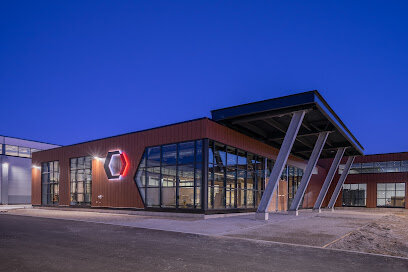Best ADR Mediation & Arbitration Lawyers in Kitchener
Share your needs with us, get contacted by law firms.
Free. Takes 2 min.
List of the best lawyers in Kitchener, Canada
About ADR Mediation & Arbitration Law in Kitchener, Canada
Alternative Dispute Resolution (ADR) is a popular method for resolving legal disputes outside of the courtroom. ADR typically involves mediation and arbitration, where a neutral third party helps the parties come to a resolution. In Kitchener, Canada, ADR is governed by specific laws and regulations to ensure fair and efficient outcomes for those involved.
Why You May Need a Lawyer
You may need a lawyer for ADR mediation or arbitration if you are involved in a legal dispute with another party and are seeking a resolution without going to court. A lawyer can help you navigate the complexities of ADR, ensure your rights are protected, and work towards a favorable outcome for you.
Local Laws Overview
In Kitchener, Canada, ADR laws are governed by provincial legislation, specifically the Arbitration Act and the Mediation Act. These laws outline the requirements and procedures for ADR processes, as well as the rights and responsibilities of the parties involved. It is important to be aware of these laws to ensure your ADR process is conducted properly.
Frequently Asked Questions
1. What is the difference between mediation and arbitration?
Mediation is a process where a neutral third party helps the parties involved reach a mutually agreeable solution. Arbitration, on the other hand, involves a neutral third party making a binding decision on the dispute.
2. How long does an ADR process typically take?
The length of an ADR process can vary depending on the complexity of the dispute and the willingness of the parties to reach a resolution. Some ADR processes can be completed in a matter of weeks, while others may take several months.
3. What are the benefits of ADR over traditional litigation?
ADR is often faster, less expensive, and more flexible than traditional litigation. It also allows the parties to have more control over the outcome and can help preserve relationships between the parties involved.
4. Do I need a lawyer for ADR mediation or arbitration?
While it is not required to have a lawyer for ADR, having legal representation can help ensure your rights are protected and increase the chances of a favorable outcome. A lawyer can also help you navigate the process and advocate on your behalf.
5. Can an ADR decision be appealed?
In most cases, ADR decisions are final and binding, meaning they cannot be appealed. However, there are limited circumstances where an ADR decision may be challenged, such as if there was evidence of bias or misconduct by the neutral third party.
6. What types of disputes are suitable for ADR?
Many types of disputes can be resolved through ADR, including contract disputes, family law matters, workplace conflicts, and more. ADR is particularly well-suited for disputes where ongoing relationships between the parties are important.
7. How much does ADR mediation or arbitration cost?
The cost of ADR can vary depending on the complexity of the dispute, the experience of the neutral third party, and other factors. Some ADR processes may be more cost-effective than traditional litigation, while others may be comparable in cost.
8. How do I choose a neutral third party for ADR?
It is important to select a neutral third party who is experienced in ADR, impartial, and has a good reputation. You may want to consider factors such as their background, training, and track record of success in resolving disputes.
9. What happens if the parties cannot reach a resolution in ADR?
If the parties are unable to reach a resolution through ADR, they may need to pursue other legal options, such as traditional litigation. In some cases, parties may agree to pursue additional ADR processes or seek further negotiation assistance.
10. How can I prepare for ADR mediation or arbitration?
To prepare for ADR, it is helpful to gather relevant documents, evidence, and information related to the dispute. You should also be prepared to communicate openly and honestly with the other party and the neutral third party to work towards a resolution.
Additional Resources
If you are in need of legal advice or assistance with ADR mediation or arbitration in Kitchener, Canada, you may consider contacting the Ontario Bar Association or the ADR Institute of Ontario. These organizations can provide additional information and resources to help you navigate the ADR process.
Next Steps
If you find yourself in need of legal assistance with ADR mediation or arbitration in Kitchener, Canada, it is important to consult with a qualified lawyer who specializes in ADR. They can help guide you through the process, protect your rights, and work towards a favorable resolution for your legal dispute.
Lawzana helps you find the best lawyers and law firms in Kitchener through a curated and pre-screened list of qualified legal professionals. Our platform offers rankings and detailed profiles of attorneys and law firms, allowing you to compare based on practice areas, including ADR Mediation & Arbitration , experience, and client feedback.
Each profile includes a description of the firm's areas of practice, client reviews, team members and partners, year of establishment, spoken languages, office locations, contact information, social media presence, and any published articles or resources. Most firms on our platform speak English and are experienced in both local and international legal matters.
Get a quote from top-rated law firms in Kitchener, Canada — quickly, securely, and without unnecessary hassle.
Disclaimer:
The information provided on this page is for general informational purposes only and does not constitute legal advice. While we strive to ensure the accuracy and relevance of the content, legal information may change over time, and interpretations of the law can vary. You should always consult with a qualified legal professional for advice specific to your situation.
We disclaim all liability for actions taken or not taken based on the content of this page. If you believe any information is incorrect or outdated, please contact us, and we will review and update it where appropriate.












